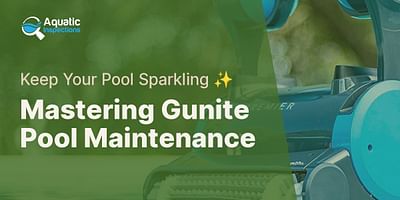Johnathan 'Johnny' Waters is a seasoned pool inspector with over 15 years of experience in the industry. He is a certified pool operator and has a deep understanding of pool chemistry. Johnny is passionate about helping pool owners maintain their pools in the best condition possible.
Hey there! Maintaining a pool can be a breeze if you have the right knowledge and tools. As an experienced pool inspector, I'm here to guide you through the ins and outs of pool maintenance. Let's dive right in!
When it comes to pool maintenance, the level of care required depends on several factors, including the size of your pool, the climate you live in, and how frequently the pool is used. However, there are some general guidelines you can follow to keep your pool in top condition.
Regular Cleaning: One of the most important aspects of pool maintenance is regular cleaning. This includes skimming the surface of the water to remove leaves and debris, brushing the walls and floor to prevent algae buildup, and vacuuming the pool to remove dirt and sediment. Aim to do these tasks at least once a week to keep your pool looking pristine.
Water Chemistry: Maintaining proper water chemistry is crucial for the health and safety of swimmers. You'll need to regularly test the water's pH, chlorine levels, alkalinity, and calcium hardness. Adjusting these levels as needed will help prevent issues like algae growth, cloudy water, and skin irritation. Test your water at least twice a week, especially during the summer months when the pool is used more frequently.
Filter Maintenance: Your pool's filtration system plays a vital role in keeping the water clean and clear. It's important to clean or backwash the filter regularly to remove any trapped debris. Additionally, you should inspect the filter for any signs of damage and replace the filter media as recommended by the manufacturer.
Equipment Checks: Regularly inspecting your pool equipment is essential to catch any issues early on. Check the pump, motor, and other equipment for leaks, unusual noises, or signs of wear and tear. It's also important to clean out the skimmer and pump baskets to ensure proper water flow.
Seasonal Tasks: Depending on your climate, you may need to perform additional maintenance tasks during certain seasons. For example, if you live in an area with freezing temperatures, you'll need to winterize your pool to protect it from damage. On the other hand, if you live in a warmer climate, you may need to take extra precautions during hurricane season.
Professional Inspections: While regular maintenance tasks can go a long way in keeping your pool in great shape, it's also a good idea to schedule professional inspections at least once a year. A qualified pool inspector can assess the overall condition of your pool, identify any potential issues, and provide recommendations for repairs or upgrades.
Now, you might be wondering about the cost of pool maintenance. Well, it can vary depending on factors such as the size of your pool, your location, and whether you choose to do the maintenance yourself or hire a professional. On average, you can expect to spend anywhere from $500 to $2,000 per year on routine pool maintenance, including chemicals, equipment, and occasional repairs.
If you're looking to save some money, there are plenty of DIY pool maintenance tasks you can tackle yourself. However, keep in mind that certain tasks, such as electrical repairs or major equipment replacements, should always be left to the professionals for safety reasons.
In conclusion, maintaining a pool requires regular cleaning, proper water chemistry, filter maintenance, equipment checks, and seasonal tasks. By staying on top of these tasks and scheduling professional inspections, you can ensure your pool remains a safe and enjoyable oasis for years to come. Happy swimming!















